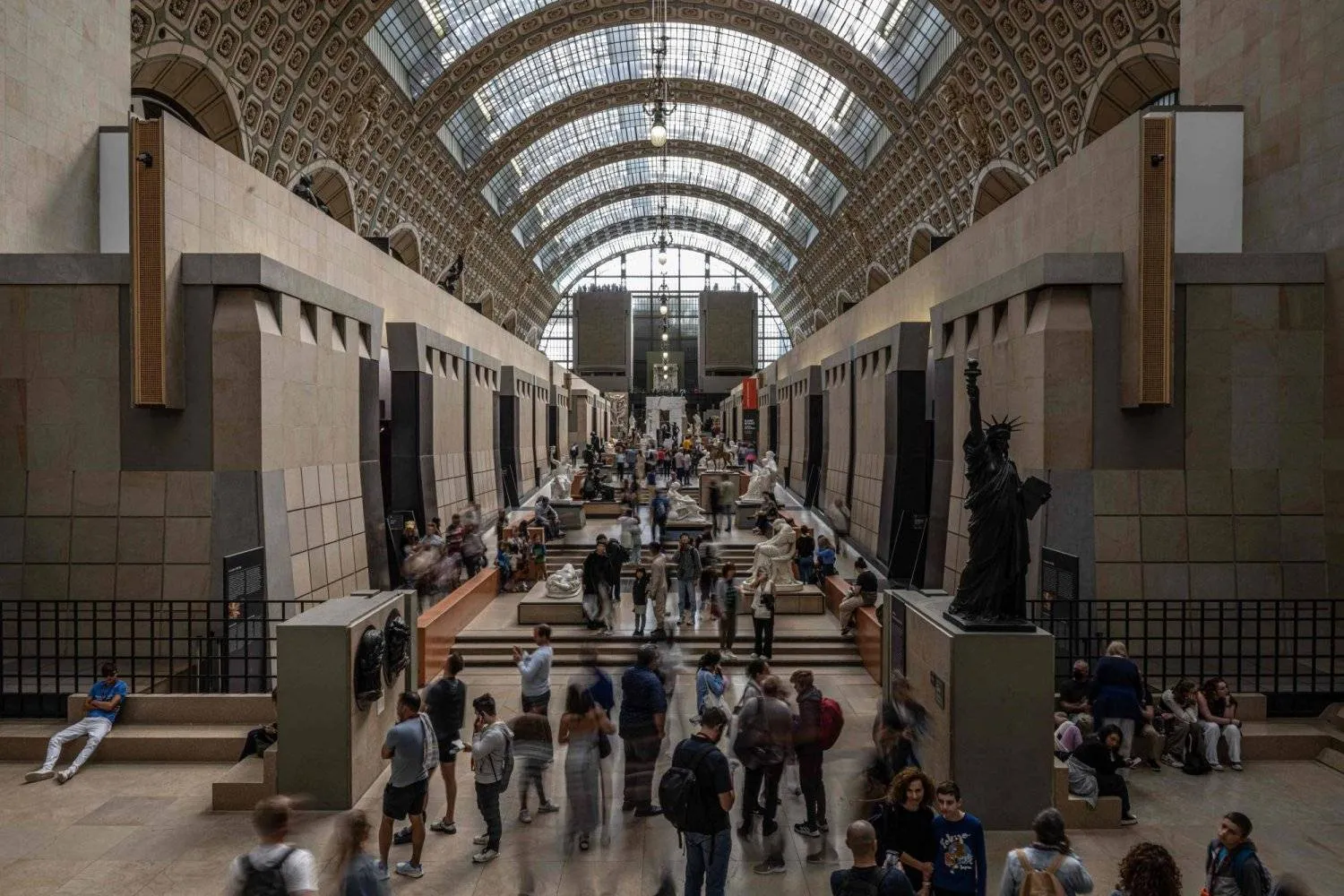Museums in Paris are deploying artificial intelligence (AI) and immersive experiences to lure the younger audience but without ditching the traditional museum tour.
“It’s the language of the new generations... those who were born in the digital age and see a deficiency in every hall that lacks modern technology,” Chloé Siganos, head of live entertainment at the Pompidou Center, a prominent museum of modern art and a leading cultural destination of modern technologies, told AFP.
While some private cultural centers, such as l'Atelier des Lumières, specialize in modern technologies and prioritize developing their digital exhibitions around the world, modern techs aren’t as common in official institutions.
The Louvres started a limited use of modern technologies in 2019, using virtual reality (VR) to make Leonardo Da Vinci speak about many of his works, including the Mona Liza. Since October, the visitors of the world’s largest museum have become able to explore some ancient Egyptian antiquities using their smartphones and augmented reality (AR).
Using an AR headset, the Pompidou Center raised awareness last year in France and the world about the story of civil right activist Claudette Colvin, the first US black woman who refused to waive her bus seat for a white person, before Rosa Parks.
Her story was told through holograms that embodied people from her life in Alabama in the 1950s.
Hugo Danthez, from HoloForge Interactive, explained how his company used AR to “rediscover the Villa Masséna Casine in Nice, Maison Poincaré of mathematics in Paris, and the Christian-Ethiopian Lalibela site enlisted on the UNESCO World Heritage List.” Danthez believes that this technology is “not completely separated from reality,” hoping to use it one day in Versailles.
Today, we say “before and after ChatGPT,” Marion Carré, president and co-founder of ‘Ask Mona’, a startup specialized in cultural AI, told AFP.
“The company developed the first audio guide that provides direct answers to visitors’ queries. It is currently being used at Quebec’s National Museum of Fine Arts,” she said.
“Immersive experiences and new technologies do not replace the traditional observation of the artwork. Yet, it helps boosting the museum experience and luring a new audience,” said Valentin Schmite, director-general of ‘Ask Mona’, which provides magnets that allow the user to communicate (using text or voice commands) with around 30 historic figures after scanning a QR code on their smartphone.
According to Schmite, “this simple and replicable content” has been adopted since 2017 by around 200 museums around the world, including the Louvres, Pompidou Center and Rome’s Colosseum.
At the d'Orsay Museum, which installed a significant number of devices for an exhibition about Vincent Van Gogh, the focus is on one objective, “examining every immersive experience,” and “respecting the museum’s financial stability.”
The museum plans to repeat the project in March, with a 45-minute immersive experience using VR headsets for its first impressionist exhibition.
In the Netherlands, the Hilversum Media Museum followed suit, using facial recognition to offer a customized experience that allows every visitor to establish their own profile.
“After their photo is taken, the visitor shall provide their email address, birthday and preferences, to enjoy a visit that is specially curated for them on their smartphone,” said Karen Drost, director of the museum.









